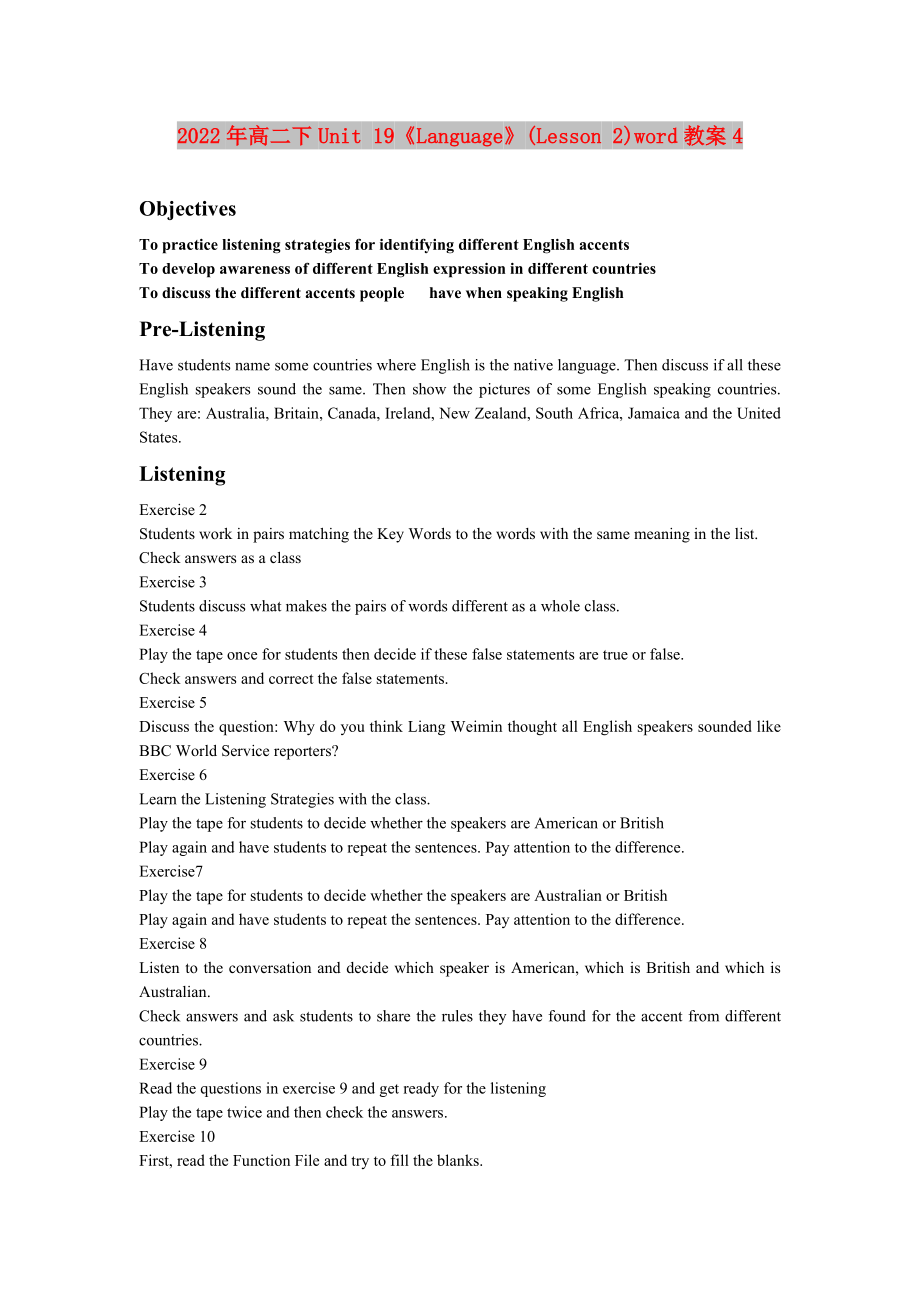《2022年高二下Unit 19《Language》(Lesson 2)word教案4》由會(huì)員分享����,可在線閱讀,更多相關(guān)《2022年高二下Unit 19《Language》(Lesson 2)word教案4(2頁珍藏版)》請(qǐng)?jiān)谘b配圖網(wǎng)上搜索�����。
1���、2022年高二下Unit 19《Language》(Lesson 2)word教案4
Objectives
To practice listening strategies for identifying different English accents
To develop awareness of different English expression in different countries
To discuss the different accents people have when speaking English
Pre-Listening
Ha
2�����、ve students name some countries where English is the native language. Then discuss if all these English speakers sound the same. Then show the pictures of some English speaking countries. They are: Australia, Britain, Canada, Ireland, New Zealand, South Africa, Jamaica and the United States.
Listen
3�����、ing
Exercise 2
Students work in pairs matching the Key Words to the words with the same meaning in the list.
Check answers as a class
Exercise 3
Students discuss what makes the pairs of words different as a whole class.
Exercise 4
Play the tape once for students then decide if these false sta
4�、tements are true or false.
Check answers and correct the false statements.
Exercise 5
Discuss the question: Why do you think Liang Weimin thought all English speakers sounded like BBC World Service reporters?
Exercise 6
Learn the Listening Strategies with the class.
Play the tape for students
5、to decide whether the speakers are American or British
Play again and have students to repeat the sentences. Pay attention to the difference.
Exercise7
Play the tape for students to decide whether the speakers are Australian or British
Play again and have students to repeat the sentences. Pay a
6����、ttention to the difference.
Exercise 8
Listen to the conversation and decide which speaker is American, which is British and which is Australian.
Check answers and ask students to share the rules they have found for the accent from different countries.
Exercise 9
Read the questions in exercise
7���、 9 and get ready for the listening
Play the tape twice and then check the answers.
Exercise 10
First, read the Function File and try to fill the blanks.
Play the tape to plete the gaps.
Check the answers by playing the tape again.
Discuss whether the expressions are polite or impolite, direct
8�、or indirect.
Exercise 11
Listen and think about language and intonation. Decide which requests are polite and indirect, too direct and possibly rude.
After-Listening
Exercise 12
Learn the Speaking Strategies together.
Work in pairs. Two students role play the situation.
Homework
Read the Culture Corner on page 16 to learn more about the English around the world.
 2022年高二下Unit 19《Language》(Lesson 2)word教案4
2022年高二下Unit 19《Language》(Lesson 2)word教案4

